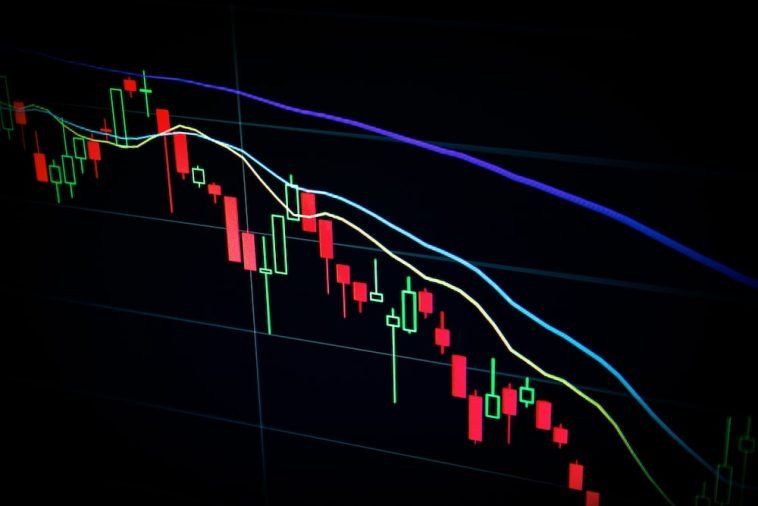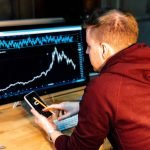Introduction.
If you’re new to the world of forex trading, you might feel overwhelmed by the big numbers and constant market changes. It’s true that the forex market is vast, with trillions of dollars traded every day, but don’t let that scare you.
The reality is, you can start small and still see great results if you approach forex trading with the right mindset and strategy.
Growing a small forex account is a challenge, but it’s entirely possible. In this guide, I’ll walk you through some practical steps and tips that can help you build your account from scratch—without needing a huge bankroll to get started.
If you’ve been trying to figure out how to turn a small forex account into something more substantial, you’re in the right place.
Understanding the Basics of Forex Trading
Before diving into strategies for growing your account, let’s quickly go over some basics of forex trading. Forex (short for foreign exchange) is the global marketplace where currencies are bought and sold.
It operates 24 hours a day, five days a week, and the goal is to predict the direction of currency price movements in order to make a profit.
You can trade with a small amount of money—sometimes as little as $50 or $100—thanks to leverage.
Leverage allows you to control a larger position with a smaller amount of capital. However, this can be a double-edged sword.
While leverage amplifies profits, it also increases risk. So, managing that risk becomes essential as you work to grow your small forex account.
Now, let’s get into some practical ways you can grow that small forex account.
How Do I Grow a Small Forex Account?
1. Start with a Solid Trading Plan
The first thing you’ll want to do is create a trading plan. This doesn’t need to be super complicated, but it should lay out clear rules for how you’ll trade.
Having a plan helps prevent impulsive decisions and keeps you focused on long-term growth. Here’s what you should include:
- Your risk tolerance: How much of your account are you willing to risk per trade? Most traders suggest risking no more than 1% of your account balance per trade.
- Trading strategy: Decide on the types of trades you’ll take. Will you focus on short-term or long-term trades? Will you follow trends or look for reversals?
- Goals: Set realistic targets for your account growth. Don’t expect to turn $100 into $1,000 overnight. Start with smaller, achievable goals and increase them as you gain experience.
2. Manage Your Risk
Risk management is the cornerstone of successful forex trading, especially when you’re working with a small account.
The temptation to “go big” on a single trade can be strong, but this is one of the quickest ways to blow up your account. Instead, you need to manage your risk carefully.
One common rule among forex traders is to never risk more than 1% of your account balance on a single trade.
For example, if you have a $500 account, the maximum you should risk on one trade is $5. This might seem like a small amount, but it helps protect your account from big losses, allowing you to stay in the game longer.
There are also tools you can use, such as stop-loss orders, to limit your potential losses. A stop-loss automatically closes your trade if the market moves against you beyond a certain point.
This is crucial when trading with a small account because it can prevent you from losing more than you’re willing to.
3. Focus on Low-Risk, High-Probability Trades
When you’re trying to grow a small forex account, focusing on low-risk, high-probability trades is key. You don’t need to be making trades every minute of the day. Instead, focus on quality, not quantity.
One way to find these trades is by using technical analysis. Look for trends, support and resistance levels, and chart patterns that indicate high-probability setups.
These setups don’t guarantee success, but they improve your chances of making a profitable trade.
Another important factor is patience. It’s tempting to jump into trades at any moment, but the most successful traders wait for the right opportunities.
Waiting for a trade to align with your strategy will help you grow your account steadily and avoid the stress of chasing the market.
4. Use Leverage Cautiously
Leverage can be a powerful tool in forex trading, especially when you’re working with a small account.
With leverage, you can control a larger position with a smaller amount of capital. However, it’s important to use leverage cautiously, as it can also magnify your losses.
For example, if you have a $100 account and use 10:1 leverage, you can control a $1,000 position. While this increases your potential profit, it also increases the potential loss.
Many beginner traders use too much leverage, hoping to make big gains, but they end up losing more than they can afford.
A good rule of thumb is to use low leverage when you’re just starting. This gives you more room to make mistakes without blowing your account. As you gain experience and confidence, you can gradually increase your leverage.
5. Keep Your Emotions in Check
Emotions can be your worst enemy when trading forex. Fear, greed, and impatience can lead to poor decision-making, which can quickly wipe out your gains. One of the best ways to grow a small account is by staying calm and sticking to your plan.
If you take a loss, don’t try to “chase” the market to make up for it. If you make a big win, don’t get overconfident and start taking larger risks. Always stay grounded and stick to your risk management rules.
To help control your emotions, consider keeping a trading journal. Writing down your trades, thoughts, and feelings after each session can help you identify patterns and improve your decision-making over time.
6. Stay Consistent and Be Patient
Growing a small forex account isn’t about making huge gains in a short time. It’s about consistency. Successful traders understand that slow, steady growth is the key to long-term success. Aim for small, consistent profits rather than trying to “hit it big” on every trade.
Patience is also essential. There will be periods of drawdown (losses), but the key is to keep going and trust in your strategy.
The forex market is full of opportunities, and the more you trade, the better you’ll become at spotting them.
7. Learn from Your Mistakes
Every trader makes mistakes. Failure is part of the learning process. When things don’t go as planned, take the time to analyze what went wrong.
Was it a poor trade setup? Did you mismanage your risk? Were your emotions involved in the decision?
By learning from your mistakes, you can avoid repeating them in the future. The more you trade, the better you’ll get at recognizing profitable setups and managing risk effectively.
FAQs
1. Can I make money with a small forex account?
Yes, it’s definitely possible to make money with a small forex account. The key is to focus on risk management, patience, and consistency. Start small, and as you gain experience, you can gradually increase the size of your trades.
2. How much money do I need to start trading forex?
You can start trading forex with as little as $50 or $100, depending on the broker you choose. However, keep in mind that the more you start with, the more flexibility you’ll have to absorb losses and still stay in the game.
3. How long does it take to grow a small forex account?
The time it takes to grow a small forex account depends on various factors, including your strategy, risk management, and market conditions. It’s important to set realistic expectations and focus on consistent, gradual growth.
Conclusion
Growing a small forex account takes time, effort, and patience. But with the right approach, risk management, and mindset, it’s entirely achievable. The key is to stay focused, manage your emotions, and follow a solid plan that aligns with your goals.
So, are you ready to take your small forex account and start growing it? It might not happen overnight, but with persistence and discipline, the results can be rewarding.





GIPHY App Key not set. Please check settings